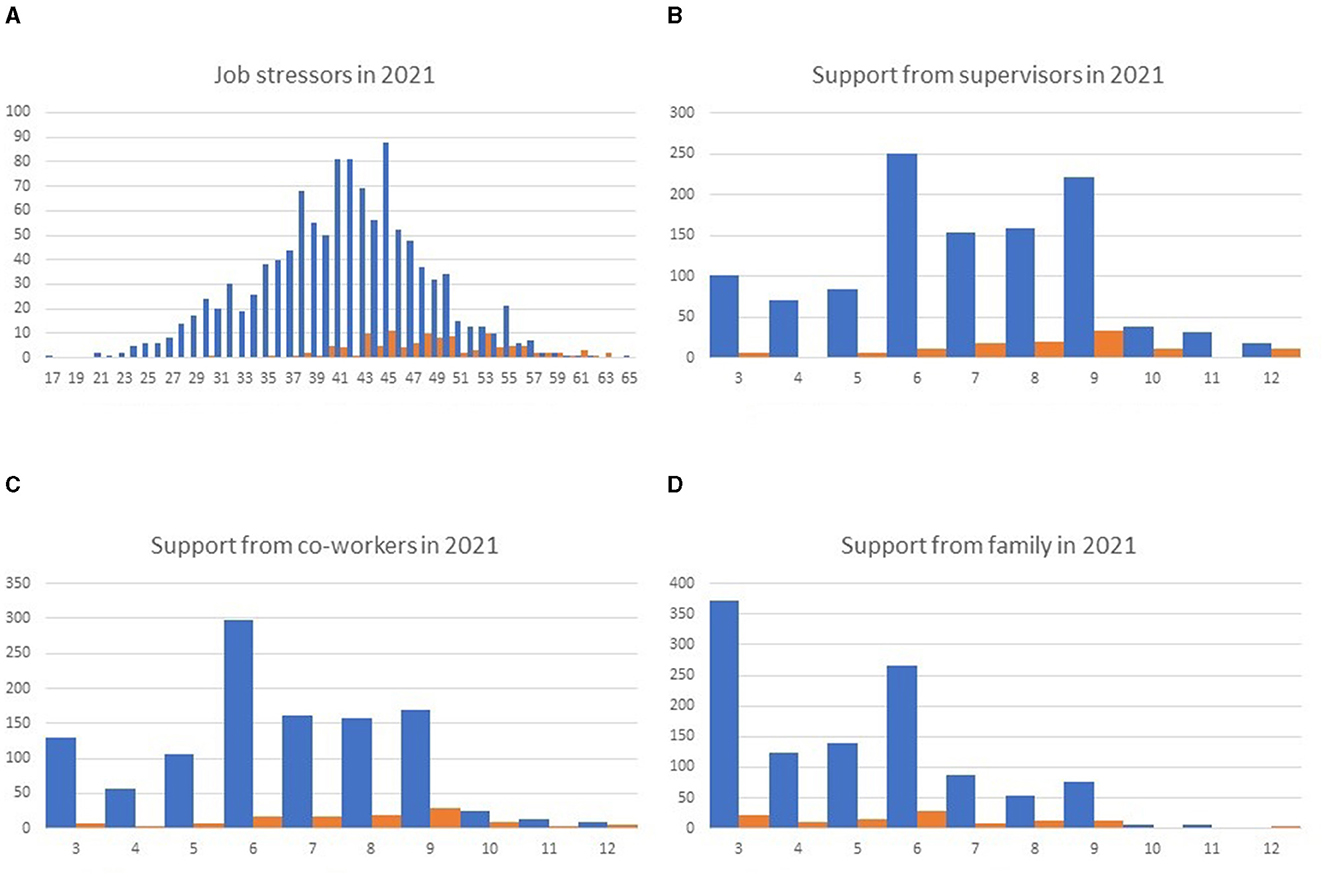
95% of researchers rate our articles as excellent or good
Learn more about the work of our research integrity team to safeguard the quality of each article we publish.
Find out more
CORRECTION article
Front. Public Health , 01 July 2024
Sec. Occupational Health and Safety
Volume 12 - 2024 | https://doi.org/10.3389/fpubh.2024.1449081
This article is a correction to:
Limited social support is associated with depression, anxiety, and insomnia in a Japanese working population
 Chie Omichi1,2†
Chie Omichi1,2† Yuki Kaminishi1†
Yuki Kaminishi1† Hiroshi Kadotani1*†
Hiroshi Kadotani1*† Yukiyoshi Sumi1†
Yukiyoshi Sumi1† Ayaka Ubara1,3†
Ayaka Ubara1,3† Kohei Nishikawa1,4†
Kohei Nishikawa1,4† Arichika Matsuda1†
Arichika Matsuda1† Yuji Ozeki1† on behalf of NinJaSleep Study Group
Yuji Ozeki1† on behalf of NinJaSleep Study GroupA corrigendum on
Limited social support is associated with depression, anxiety, and insomnia in a Japanese working population
by Omichi, C., Kaminishi, Y., Kadotani, H., Sumi, Y., Ubara, A., Nishikawa, K., Matsuda, A., and Ozeki, Y. (2022). Front. Public Health 10:981592. doi: 10.3389/fpubh.2022.981592
In the published article, there was an error in the legends within Figure 2. The corrected Figure 2 and its caption appear below.

Figure 2. Histogram of stressors and support scores in 2021, classified according to the presence (orange) or absence (blue) of high stress levels in 2020. Job stressors (A) and support from supervisors (B), co–workers (C), and family (D) are presented. A smaller number of job stressors suggests less job stress. Smaller scores in the responses to the questions about support suggest a better support situation.
The authors apologize for this error and state that this does not change the scientific conclusions of the article in any way. The original article has been updated.
All claims expressed in this article are solely those of the authors and do not necessarily represent those of their affiliated organizations, or those of the publisher, the editors and the reviewers. Any product that may be evaluated in this article, or claim that may be made by its manufacturer, is not guaranteed or endorsed by the publisher.
Keywords: social support, job stress, depression, anxiety, insomnia, occupational health
Citation: Omichi C, Kaminishi Y, Kadotani H, Sumi Y, Ubara A, Nishikawa K, Matsuda A and Ozeki Y (2024) Corrigendum: Limited social support is associated with depression, anxiety, and insomnia in a Japanese working population. Front. Public Health 12:1449081. doi: 10.3389/fpubh.2024.1449081
Received: 17 June 2024; Accepted: 17 June 2024;
Published: 01 July 2024.
Approved by:
Frontiers Editorial Office, Frontiers Media SA, SwitzerlandCopyright © 2024 Omichi, Kaminishi, Kadotani, Sumi, Ubara, Nishikawa, Matsuda and Ozeki. This is an open-access article distributed under the terms of the Creative Commons Attribution License (CC BY). The use, distribution or reproduction in other forums is permitted, provided the original author(s) and the copyright owner(s) are credited and that the original publication in this journal is cited, in accordance with accepted academic practice. No use, distribution or reproduction is permitted which does not comply with these terms.
*Correspondence: Hiroshi Kadotani, a2Fkb3RhbmlzbGVlcEBnbWFpbC5jb20=
†ORCID: Chie Omichi orcid.org/0000-0003-4851-0301
Yuki Kaminishi orcid.org/0000-0003-2679-2838
Hiroshi Kadotani orcid.org/0000-0001-7474-3315
Yukiyoshi Sumi orcid.org/0000-0001-6775-0883
Ayaka Ubara orcid.org/0000-0003-4966-6703
Kohei Nishikawa orcid.org/0000-0002-7081-4232
Arichika Matsuda orcid.org/0000-0002-3014-9565
Yuji Ozeki orcid.org/0000-0002-9516-0941
Disclaimer: All claims expressed in this article are solely those of the authors and do not necessarily represent those of their affiliated organizations, or those of the publisher, the editors and the reviewers. Any product that may be evaluated in this article or claim that may be made by its manufacturer is not guaranteed or endorsed by the publisher.
Research integrity at Frontiers

Learn more about the work of our research integrity team to safeguard the quality of each article we publish.